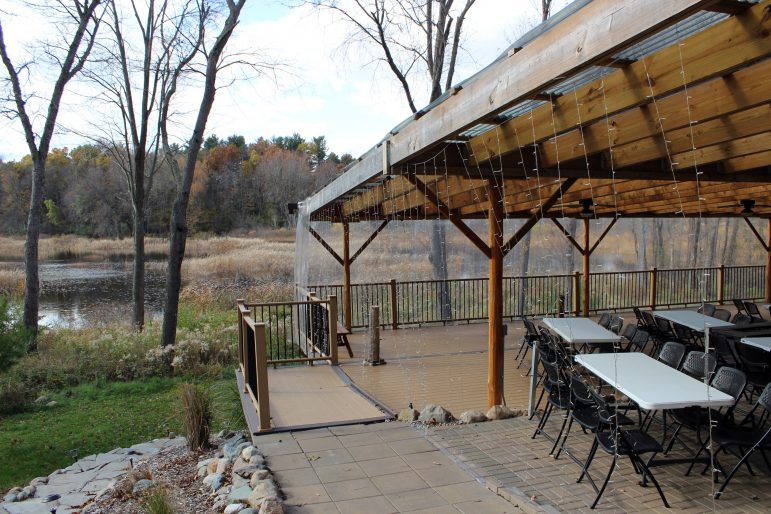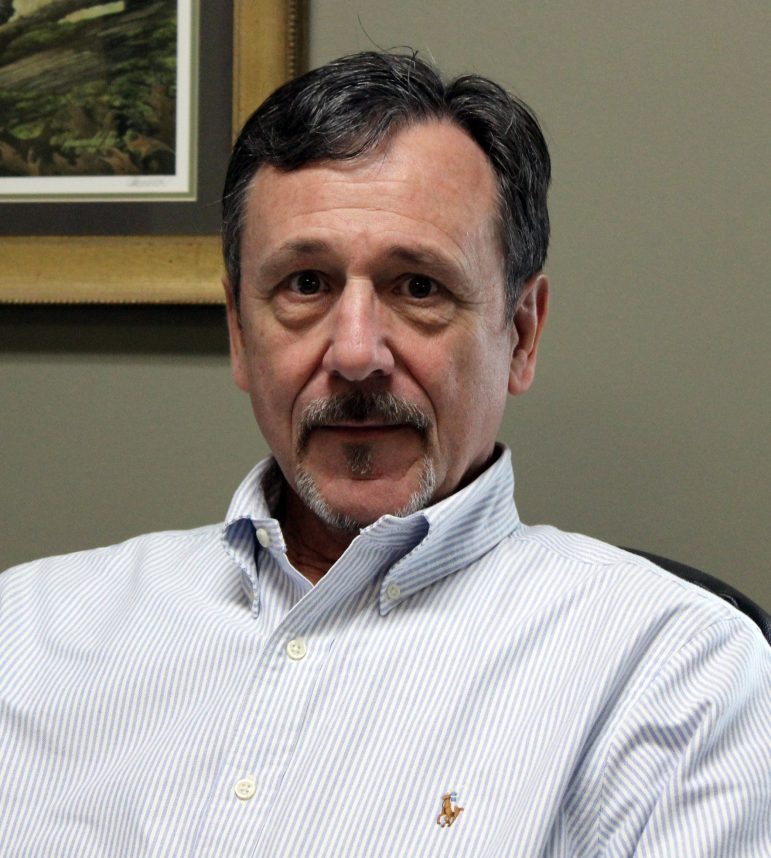
The connection between wildlife conservation and weddings may not be apparent to some, but in the last few years the two have become inextricably linked for the staff of Michigan Wildlife Conservancy’s Bengel Wildlife Center.
Located in Bath Township, the nonprofit organization has to focus on raising funds through events, donations and food and beverage operations like that of its Wildlife Pub in order to support conservation work.
The covered patio is a huge draw for wedding clients especially. Christine Murphy, manager of weddings and digital media, said the facilities have been under improvement. It is trying to raise funds to enclose the covered patio with clear vinyl siding. Heating implements are being looked at as well.
“With that and a decent size of guests or party,” Murphy said. “We’re hoping that the body heat, with those things in and the siding, will insulate it–kind of keep it toastier–to extend our season [to] April, November, maybe even March.”
It’s November, so the center’s wedding season is over. But Murphy said the 52 weddings it hosted this year made for an unprecedentedly successful season.

President and CEO John Ropp. Photo by David Reinke.
President and CEO John Ropp said neither the state nor federal government have ever granted them money. The center has to be self-sustaining.
“You can be passionate about wildlife,” Ropp said. “But if you don’t make any money, the place goes out of business. And then who are you helping? You aren’t helping any wildlife by going out of business. That’s just the nuts and bolts of business.”
With four full-time staff members and just a few more part-time staff members, maintaining 259 acres of land just off the expressway requires a lot of work, said Burdette Pombier, director of marketing and development.
“One of our bartenders mows the yard for us,” Pombier said. “We all kind of wear many hats. I think, in one day, I’ve chainsawed a branch, booked parties, bartended and cleaned the toilet. All in the same day. And sprayed for mosquitoes.”
Everyone contributes in more ways than one. The mission serves as a reminder of why the hard work is worth it, and is an incentive for couples to choose the center for their wedding venue.
“Knowing that what comes from the weddings gets put back into our mission work and is more or less the reason we’re still up and running… people think that’s really cool,” Murphy said. “I like to tell everyone every time I give a tour.”
The mission keeps the staff going as well.
“When you get sick of pushing all the emails and answering phones and putting up with people,” Pombier said. “You know, you think about what we’re actually doing. It makes you feel good.”
In one of its most recent efforts, the conservancy provided funds that brought in trained, scat-sniffing shelter dogs from out of state to search for a species of animal called a fisher. The dogs looked for evidence of these animals’ existence in the lower northern Michigan region, where they were thought to be long since non-existent.
In the past few weeks, Ropp said 800 bass and 500 trout were added to the two on-site ponds to encourage the center’s members to fish, and to create a place where the center can educate others about fishing.
“Take care of wildlife and teach others to do so,” Ropp said. “If everybody was an environmentalist, we wouldn’t really have environmental concerns, right? So the same theory goes, if everybody was a conservationist, we probably wouldn’t have the conservation struggles we have with species of animals and plants.”
Ropp said “fewer and fewer” people tend to spend their time out in nature. That’s something the conservancy wants to change.
“They’re spending it in front of their phone in their apartment, and don’t have access to trails,” he said. “… We’re providing access so that they can get out and enjoy it. We feel that if they enjoy it, experience nature with wildlife, then they’ll tend to be more of a conservationist, and take care of them and care about the wildlife.”